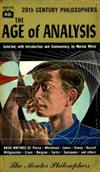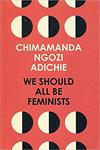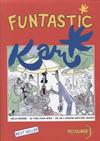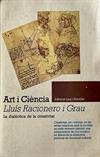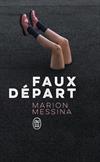
The Little Drummer Girl
3 journalers for this copy...
Picked this up from the book exchange (not yet an OBCZ) shelf at work. TBR then released in the same place.
Journal Entry 2 by michiganpete at ISR - 426 Thompson in Ann Arbor, Michigan USA on Thursday, March 11, 2004
Released on Thursday, March 11, 2004 at ISR - 426 Thompson - Book Exchange in Ann Arbor, Michigan USA.
Near the vending machines on the second floor
Near the vending machines on the second floor
Picked up off ISR Book Exchange rack.
I like this BookCrossing label! Where are they available?
I may not get around to this for a while. I have acquired books lately rather faster than I can read them.
I like this BookCrossing label! Where are they available?
Pete pointed me to Lythe's Big BX labels, and I tried to print them out, but the sizing did not work out well. So my mom made an adaptation for me, which I would be happy to share if anyone else wants labels with this text. Just PM me.I have not yet read a full Carre book, but I am glad of the opportunity to do so. I started reading this on the walk home from campus today. Little snowflakes flitted down in between the pages. (Lovely weather today.) The first thing that happens is a bombing at the home of an Israeli diplomat in Germany in 1982, a bombing claimed by a group called Palestine Agony. I expect I'll learn something about politics from this book. It may depress me, too.
I may not get around to this for a while. I have acquired books lately rather faster than I can read them.
150 pages in ...
I have just completed a rather breathless reading of the first extended scene of the book, an all-night interrogation/recruitment, which perhaps also could be called a brainwashing or barnstorming. It is late at night, and I am tired, but as soon as I turned out the lights and curled up in bed my mind started racing with what I wanted to say about this. I was a part of that scene, I stood there in the wings, like "Swedish Raoul, South African Rose, and North Country Rachel" watching carefully, with calculation and detailed observation, with a world-weary cynicism and a soft but powerful underground river of enthusiasm. I wanted to stand there and observe a young woman discovering (being fed) a reason to live.
But I don't want to be her.
I do not want to need a reason to live, a grand, sweeping, worldview to legitimate every breath I take. I am so lucky, I thought as I curled up into my bed, as I imagined the warmth of my boyfriend's body next to me, that all I really want out of life is time and space to love my loved ones. Suzanne Vega's music, like Leonard Cohen's, is infused in my family's bones, so my next thought was
Drummer is a book for fanatics. No, a book of fanatics:
I have just completed a rather breathless reading of the first extended scene of the book, an all-night interrogation/recruitment, which perhaps also could be called a brainwashing or barnstorming. It is late at night, and I am tired, but as soon as I turned out the lights and curled up in bed my mind started racing with what I wanted to say about this. I was a part of that scene, I stood there in the wings, like "Swedish Raoul, South African Rose, and North Country Rachel" watching carefully, with calculation and detailed observation, with a world-weary cynicism and a soft but powerful underground river of enthusiasm. I wanted to stand there and observe a young woman discovering (being fed) a reason to live.
But I don't want to be her.
I do not want to need a reason to live, a grand, sweeping, worldview to legitimate every breath I take. I am so lucky, I thought as I curled up into my bed, as I imagined the warmth of my boyfriend's body next to me, that all I really want out of life is time and space to love my loved ones. Suzanne Vega's music, like Leonard Cohen's, is infused in my family's bones, so my next thought was
I want to live as an honest manThe words are beautiful, the truth simple, as ever they were for me and my family: but again I count myself lucky, because I do understand those I love best. I do not seek martyrdom in that domain of life either.
To get all I deserve and to give all I can
And to love a young woman I don't understand
Drummer is a book for fanatics. No, a book of fanatics:
Alexis recognized the passion which till then had remained hidden from him: ... As some men may be seen to be in love, so Schulmann was possessed by a deep and awesome hatred. (25)The very small number of characters who are fully lighted have convictions this deep, as do many of the supporting characters merely watching from the wings. (For those who will recognize the reference, Marcus from Babylon 5 belongs somewhere in this book, perhaps as the young recruit herself, perhaps as her shepherd.)
You add to this certain modern postures. Such as a revulsion against boredom, against prosperity, against what I believe is known as the air-conditioned misery of Western capitalism. And you remind yourself of the genuine misery of three-quarters of the earth's population. ... In today's world I would say you have more sound reasons for that view than ever your forebears had.No, of course it is not uncommon "in today's world" to feel that anxiety about the world's progress or regress, an anxiety seemingly blowing across a pitiless desert like ever-restless tumbleweed. What to do, what can we do, what must we do? I don't know if this book will ever address that any more. The person addressed in that exchange feels herself gently mocked for her views. She needs to anchor them to live. She needs to find that one cause to live for. I feel the anxiety, too, but I count myself lucky I am at this time in my life able to detach myself enough to live my own small-scale life. I don't have to be the one to change the world. By living in it I do make my difference.
As soon as I finish the accompanying letter, I am sending this book on to a friend whom I hope will take up BookCrossing (he is a high school teacher, which in my mind makes him an excellent candidate for an Official BookCrossing Zone--see my bookshelf for my ideas on this). This book goes to him because he may appreciate the identity crises of Little Drummer.
By the way, I don't know the nursery rhyme to which I assume this refers. Does anyone else?
I am going to be a bit coy in discussing this book, in an attempt to spoil less rather than more. Just in case, though, I will also allow spoiler space so that you can read this entry after the book if you prefer.
Half a dozen characters in this book go by four or five names. And Carre does not always clearly cross-reference them. He introduces Becker, then does not mention his name again until 100 pages later, at which point it took me minutes to figure out he was in fact the same man as a character referred to by a different name since 100 pages ago. This happens more than once, with the effect of course that people feel indeed chimeric and never quite trustworthy.
But that's just the beginning of the identity crises. The creation of the double agent astonished me. The head games this girl was run through to make her acceptable to the Palestinian terrorist group she infiltrates ... The funny thing is, the Israelis who have her other loyalty barely try at all to make Charlie accept their views. They appeal to her need for something to believe in, something to fight for, but they encourage her to turn that need towards the Palestinians. "You will find them an easy people to love."
She is an actress, and throughout the book her agent-runners speak to her of "the theater of the real." Charlie plays a part, no, lives it, for weeks on end, no time off for good behavior and no time off even in her dreams, half believing her own fictional backstory, half wanting to fight for Palestine, three-quarters not remembering why she is in bed with the Israelis. She does not have multiple personalities: she has a morass of filaments of personality, tangled and rotting together. She is destroyed. But was she someone to begin with? Has she, at the end, the possibility of becoming a whole person where she was once a shell? Has she lost everything, only to be open to receiving a life back? "More frequently it was [tragic parts'] irrelevance that got to her; she had no stomach anymore--and, worse, no understanding--for what passed for pain in Western middle-class society."
Not all of the plot was easy to buy, though. It is impossible to imagine any group being so well-organized and well-oiled and well-timed as both organizations are. Is there that much intelligence in the world?
By the way, I don't know the nursery rhyme to which I assume this refers. Does anyone else?
I am going to be a bit coy in discussing this book, in an attempt to spoil less rather than more. Just in case, though, I will also allow spoiler space so that you can read this entry after the book if you prefer.
Half a dozen characters in this book go by four or five names. And Carre does not always clearly cross-reference them. He introduces Becker, then does not mention his name again until 100 pages later, at which point it took me minutes to figure out he was in fact the same man as a character referred to by a different name since 100 pages ago. This happens more than once, with the effect of course that people feel indeed chimeric and never quite trustworthy.
But that's just the beginning of the identity crises. The creation of the double agent astonished me. The head games this girl was run through to make her acceptable to the Palestinian terrorist group she infiltrates ... The funny thing is, the Israelis who have her other loyalty barely try at all to make Charlie accept their views. They appeal to her need for something to believe in, something to fight for, but they encourage her to turn that need towards the Palestinians. "You will find them an easy people to love."
She is an actress, and throughout the book her agent-runners speak to her of "the theater of the real." Charlie plays a part, no, lives it, for weeks on end, no time off for good behavior and no time off even in her dreams, half believing her own fictional backstory, half wanting to fight for Palestine, three-quarters not remembering why she is in bed with the Israelis. She does not have multiple personalities: she has a morass of filaments of personality, tangled and rotting together. She is destroyed. But was she someone to begin with? Has she, at the end, the possibility of becoming a whole person where she was once a shell? Has she lost everything, only to be open to receiving a life back? "More frequently it was [tragic parts'] irrelevance that got to her; she had no stomach anymore--and, worse, no understanding--for what passed for pain in Western middle-class society."
Instructions, Joseph-style: Charlie, do you understand? Yes, Khalil, I understand. Then repeat it to me. She did. It is for peace, remember that. I will, Khalil, I will: for peace, for Michel, for Palestine; for Joseph and Khalil, for Marty and the revolution and for Israel, and for the theater of the real.No, Charlie has received nothing, I would say. She is an emptier shell than before, and even a more fragile one. I was interested to watch her destruction, though.
Not all of the plot was easy to buy, though. It is impossible to imagine any group being so well-organized and well-oiled and well-timed as both organizations are. Is there that much intelligence in the world?
(-You know too much.Jinnayah
-What are you going to do about that?
-Increase the total knowledge in the universe so that yours is a smaller portion of it. Or we could shoot you.)
How did I only realize today that this book is related to Notorious, the Alfred Hitchcock film with Ingrid Bergman and Cary Grant? This morning the scene where he takes her for a nail-biting ride popped into my head, only I misremembered that. She is the one driving, I believe, and she's not scared, just drunk. Cary takes it with aplomb.
But in that story, as well, a girl of questionable morality is identified by others as a perfect double agent and shepherded/bullied through her mission. I want to make a comment on which is better. It's hard. One cannot argue against Hitchcock, and I did not find Carre all that impressive, but he did have a wicked way with Charlie's growing madness, confusion, dissociation. Hitchcock would have appreciated many of the little touches himself.
But in that story, as well, a girl of questionable morality is identified by others as a perfect double agent and shepherded/bullied through her mission. I want to make a comment on which is better. It's hard. One cannot argue against Hitchcock, and I did not find Carre all that impressive, but he did have a wicked way with Charlie's growing madness, confusion, dissociation. Hitchcock would have appreciated many of the little touches himself.
I just finished The Little Drummer Girl. Once I started, I hardly put it down, though yesterday-- no, now I'm not sure I even started it until last night. I think I started it-- No: I began on Wednesday night and finished just now. Thursday was a busy day. All kinds of interruption. Hardly any reading.
The point is that I spent all of today reading it when I wasn't sleeping. Is it 4:39 AM? Of course it is, here. But I think I have hours of alertness in me. I hope that I also have the capacity to rest. I forget what day it is.
This indulgent description is supposed to say something about the book, too. Naturally. But I feel neither natural nor at ease.
The book struck me for two things. First the transformations through which Charlie puts herself seem deep, real and problematic. She is trained in her craft. All the characters are. Still the transformation implies a complete malleability of the spirit of a person. I buy that. I buy that. Well then, What should I become?
Second, the politics of the book are fascinating. How fatuous that sounds. What I mean to say is that the book's portrait of people who believe they must fight in order to survive is overwhelming and seductive. "I am here, therefore I fight." Imagine the strength of that! And yet this seduction is pitted against the despair of such a life, indeed of all life in the presence of those causes which move a person to fight.
In the face of all this, it becomes shameful to be associated with a power, a people, a state. One does not wish to be a citizen, an individual represented anyhow by some vast and inoperable machine. Selfhood is reduced to identifying details, subsumed under one's affiliations, and this is frightening, itself oppressive. And look. Look what my great American personhood is DOING in the world.
Or give me Charlie's black sunglasses, and let me sleep.
CAUGHT IN JACKSONVILLE FLORIDA USA
The point is that I spent all of today reading it when I wasn't sleeping. Is it 4:39 AM? Of course it is, here. But I think I have hours of alertness in me. I hope that I also have the capacity to rest. I forget what day it is.
This indulgent description is supposed to say something about the book, too. Naturally. But I feel neither natural nor at ease.
The book struck me for two things. First the transformations through which Charlie puts herself seem deep, real and problematic. She is trained in her craft. All the characters are. Still the transformation implies a complete malleability of the spirit of a person. I buy that. I buy that. Well then, What should I become?
Second, the politics of the book are fascinating. How fatuous that sounds. What I mean to say is that the book's portrait of people who believe they must fight in order to survive is overwhelming and seductive. "I am here, therefore I fight." Imagine the strength of that! And yet this seduction is pitted against the despair of such a life, indeed of all life in the presence of those causes which move a person to fight.
In the face of all this, it becomes shameful to be associated with a power, a people, a state. One does not wish to be a citizen, an individual represented anyhow by some vast and inoperable machine. Selfhood is reduced to identifying details, subsumed under one's affiliations, and this is frightening, itself oppressive. And look. Look what my great American personhood is DOING in the world.
Or give me Charlie's black sunglasses, and let me sleep.
CAUGHT IN JACKSONVILLE FLORIDA USA









